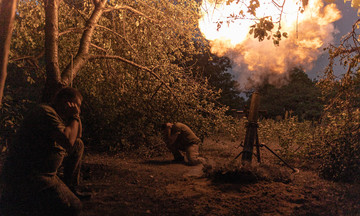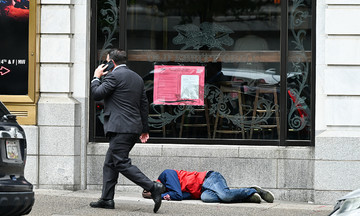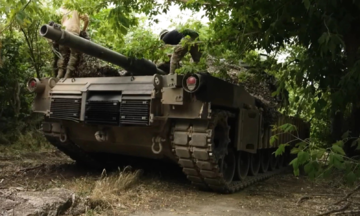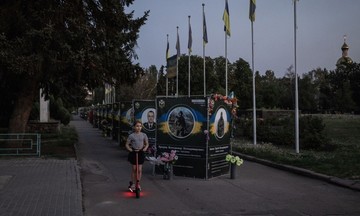Following talks in Kuala Lumpur, Malaysia, on 28/7, Thailand and Cambodia agreed to a ceasefire starting at midnight on 29/7. Acting Thai Prime Minister Phumtham Wechayachai and Cambodian Prime Minister Hun Manet shook hands after their first face-to-face meeting since fighting erupted on 24/7.
During the 5 days of conflict, both armies exchanged heavy fire, resulting in civilian casualties and displacing over 300,000 people who sought refuge in temporary shelters.
For many displaced by the fighting, the ceasefire brought relief and happiness.
"I was so happy when I heard the news because I miss my home so much. I'm overjoyed," said 45-year-old Phean Neth at a Cambodian displacement camp.
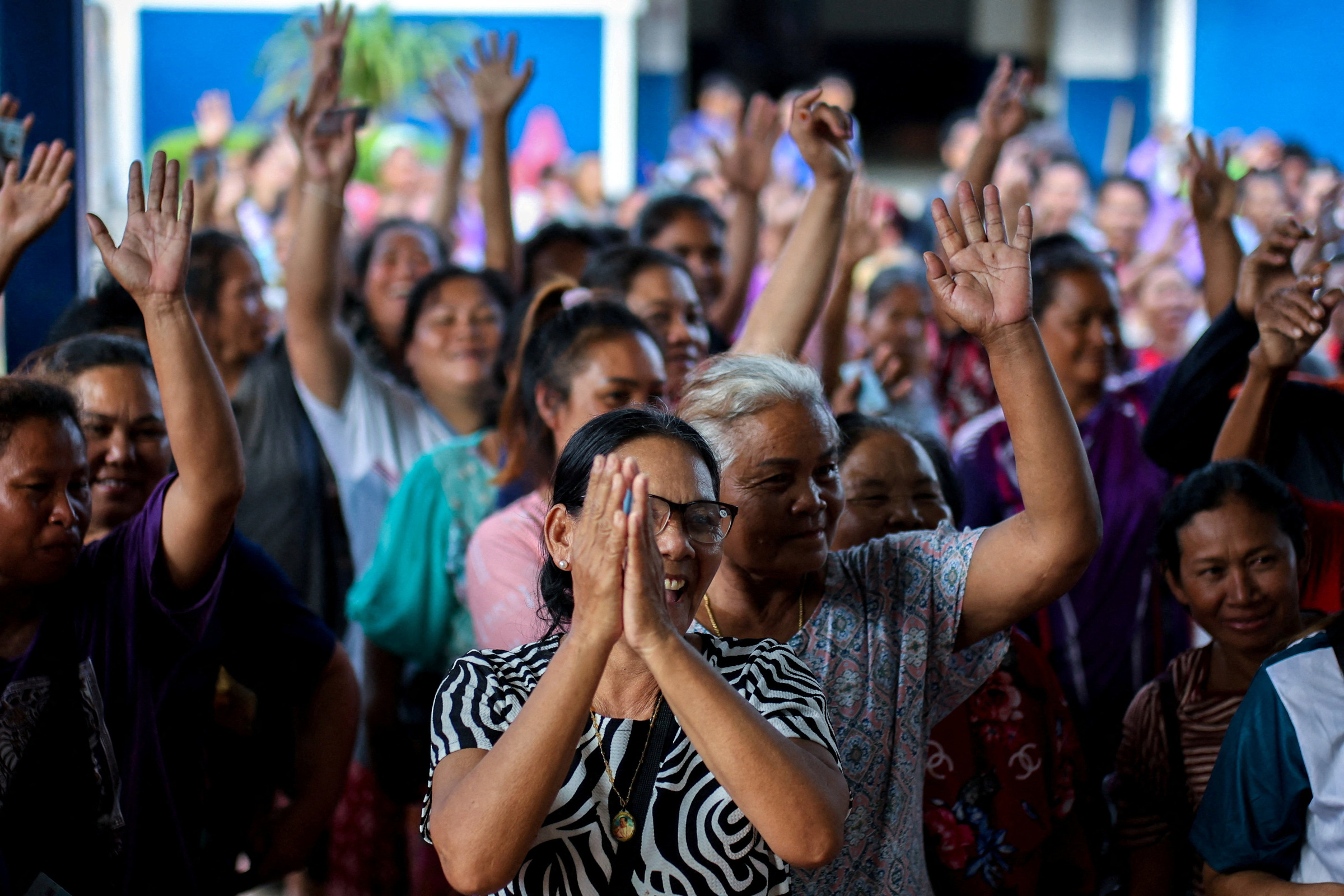 |
People celebrate after hearing the announcement of the ceasefire between Thailand and Cambodia in Sisaket province, Thailand on 28/7. Photo: Reuters |
People celebrate after hearing the announcement of the ceasefire between Thailand and Cambodia in Sisaket province, Thailand on 28/7. Photo: Reuters
Jeanjana Phaphan, a Thai citizen, counted down the minutes until the ceasefire took effect, filled with hope for peace.
"If it really ends, I will be very happy. This will be the happiest thing for me in a long time," the 48-year-old woman said.
Jeanjana evacuated her home near the border in Phanom Dong Rak district with her 3-year-old son a few days prior. She expressed her desire for the fighting to end, acknowledging the suffering it caused on both sides.
"If the two countries continue to clash, the hardship and loss will only increase," she said. "When I heard neighbors say their roofs were pierced by artillery shells, I felt so sad. The cries of those who are suffering are truly heartbreaking."
Jeanjana added that the Cambodian people across the border "are also just civilians like us, just farmers working every day to make a living."
In Cambodia's Oddar Meanchey province, Ly Nam, a 38-year-old farmer, said the fighting significantly impacted his life, even though his home is about 40 km from the conflict zone. "We had to hide in a trench, living in misery without enough food," he said.
The ceasefire is considered "an important first step towards de-escalation and restoring peace and security," according to Malaysian Prime Minister Anwar Ibrahim, who chaired the talks as the 2025 ASEAN Chair.
Dr. Mustafa Izzuddin, a senior international affairs analyst at Solaris Strategies Singapore, described the ceasefire as a major success for ASEAN in resolving the crisis between two member states.
"Malaysia's leadership was crucial as Chair in mediating between the two member states, while leveraging the influence of two dialogue partners, China and the US, to ensure the ceasefire materialized," said Dr. Izzuddin.
For civilians living on both sides of the border, the talks in Malaysia were truly meaningful, ending days of anxiety and fear. "The first thing I will do when I get home is check on my chickens, fertilize the rice, and tend to the fields," said Tee Samanjai, a 68-year-old Thai farmer.
Despite the relief, Tee expressed some doubt about the long-term sustainability of the ceasefire. "We can go home, but we are still uneasy," he said.
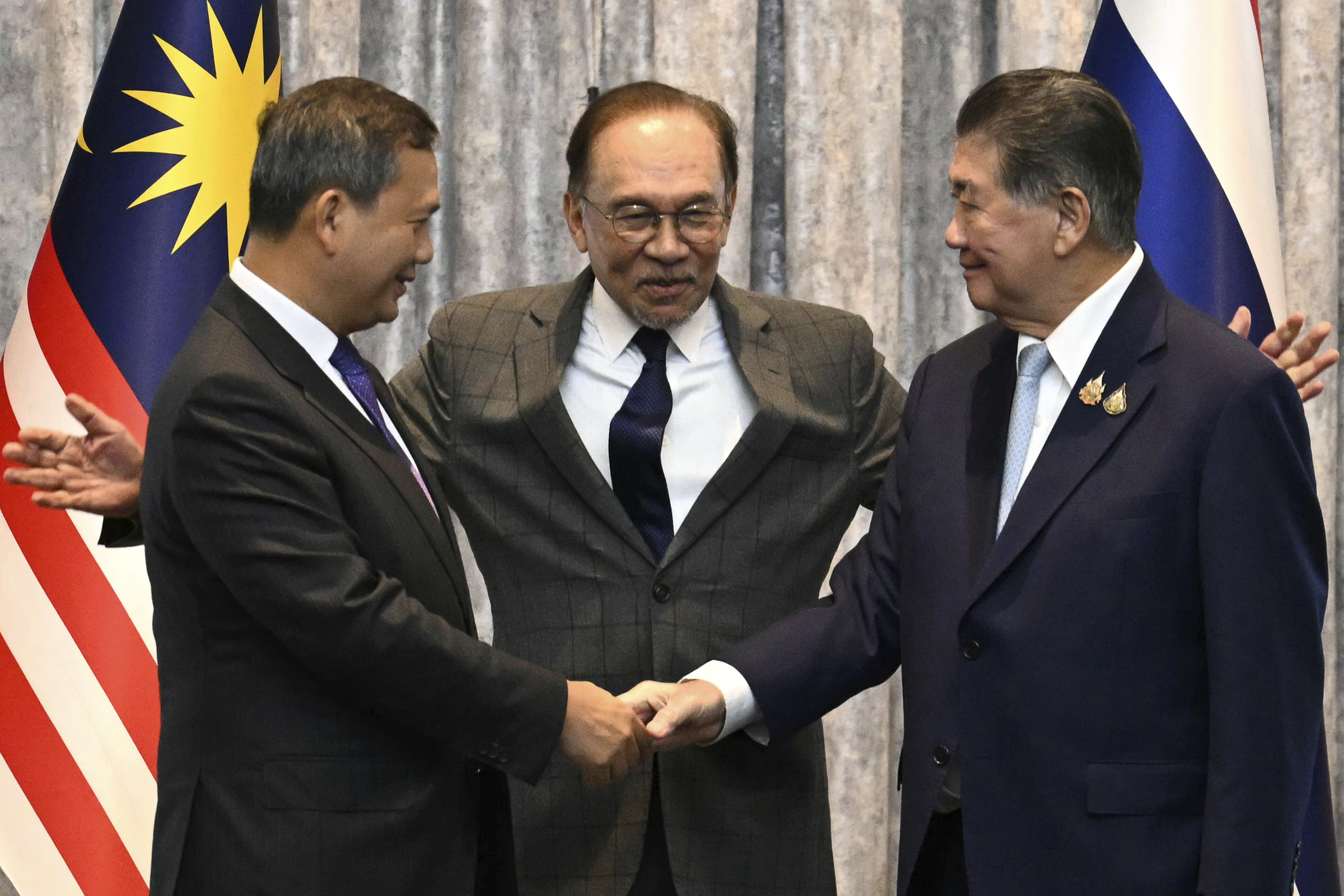 |
Cambodian Prime Minister Hun Manet (left), Malaysian Prime Minister Anwar Ibrahim (center), and Acting Thai Prime Minister Phumtham Wechayachai (right) at a press conference on the afternoon of 28/7. Photo: AP |
Cambodian Prime Minister Hun Manet (left), Malaysian Prime Minister Anwar Ibrahim (center), and Acting Thai Prime Minister Phumtham Wechayachai (right) at a press conference on the afternoon of 28/7. Photo: AP
In Thailand's Surin province, 59-year-old local official Siriwut Wongcharoen remained concerned that the fighting hadn't truly ended. "I haven't left the bunker yet because I don't feel confident enough. I'll wait two more days," he said.
Ou Virak, founder of the Cambodian think tank Future Forum, said the goal of any agreement must be lasting peace between Cambodia and Thailand.
"A ceasefire can be achieved quickly, but peace is not easy. The situation along the border area may continue to be unstable, and it will take time to ensure something lasting," Virak said.
Thailand reported that fighting continued at several points along the border after midnight on 29/7, while Cambodia stated that the situation had calmed down after the ceasefire took effect. The acting Thai prime minister described these as "minor clashes" caused by some soldiers' lack of discipline, emphasizing that the border was quiet by the morning of 29/7.
Joanne Lin, a senior fellow at the ISEAS – Yusof Ishak Institute, believes the biggest risk to the ceasefire is mutual distrust and the possibility of misunderstandings in the disputed border areas.
"A ceasefire is an immediate and short-term solution. More important is maintaining the ceasefire in the long term as Cambodia and Thailand negotiate their border disputes," said Dr. Rahman Yaacob, a researcher at the Lowy Institute in Australia.
Thuy Lam (Nation, CNA, Straits Times, Washington Post)









